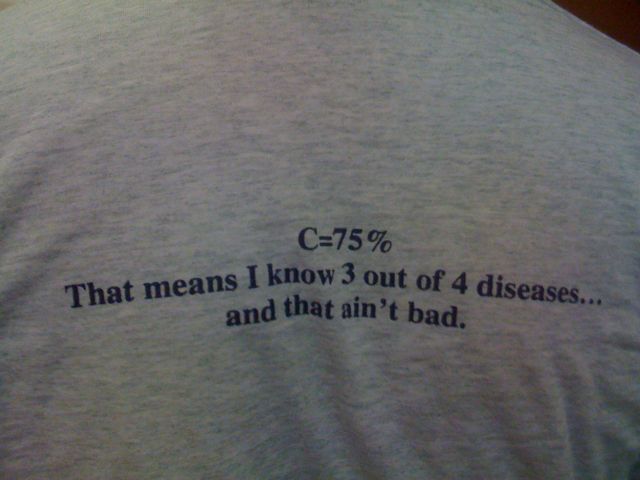These drug shortages are seriously affecting patient care for me. It's criminal. There's a good summary of why it's going on
here. In 2005 there were 61 drug shortages, in 2011 there were 267 and the
list is growing. These aren't obscure drugs that rarely get used. They are common drugs that we use all the time. That we
need to use all the time. dilaudid, fentanyl, morphine, midazolam, diazepam, lorazepam, propofol (really?), ondansetron, promethazine, succinylcholine, rocuronium, heparin (!), lidocaine, labetalol, hydralazine, norepinepherine (there are only a few pressors and this is the one we most commonly use!), to name a few. The hospital keeps on telling us to use less of them, but for many, there just isn't a good alternative.
There are a lot of possible reasons why this is happening. With few or, often, one company manufacturing many of these drugs, any production delay, violation of regulations, shipping problems, etc. can lead to a shortage. Being more cynical, I would say a major factor is that these generic medications have no money in them. However, with drug shortages, semi-legal middle-men hoard them, then sell them to hospitals at
outrageous costs (up to 800-1000% mark up in price). For example, here's what happened with erythromycin ointment (used in babies!): "All of a sudden, it went short with no notice," Culligan said. "We were able to scramble and secure our supply." Not all hospitals were so lucky; the drug was off the market for a few months. "When it came [back to market], it went from 50 cents to $8 a tube."
It hurts patient care tremendously and hospitals are forced to buy these drugs from (essentially) the black market. Especially because "manufacturers either routinely don't provide any notice of an impending drug shortage or provide little advance notice and no estimate of the projected duration." (because I'm sure they want it to last forever).
It is inhumane and it is criminal. The
FDA is trying to go after them, but they have limited authority and I'm sure they'll get nowhere. They are merely "asking them to increase production, if possible [pretty please], in order to prevent or reduce the impact of a shortage." Our healthcare system is broken in many ways, but this is something that the government needs to take care of quickly. There's are many reasons why we lag behind the rest of the world in health care measures despite having access to the most advanced care in the world and greed from pharmaceutical manufacturers should not be one of them.


